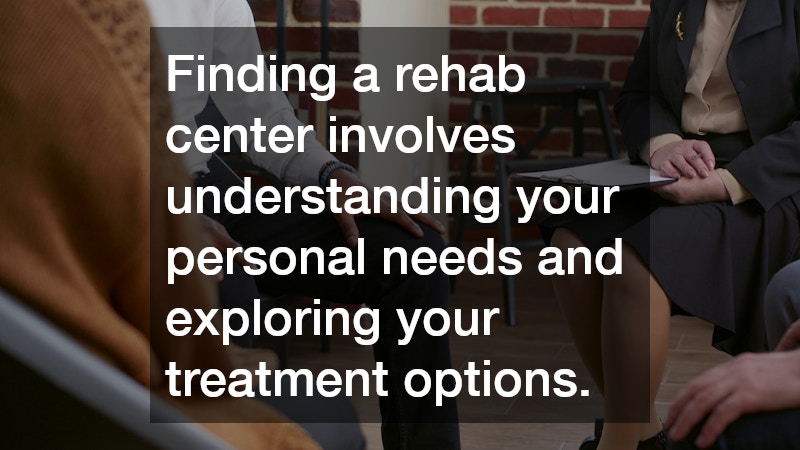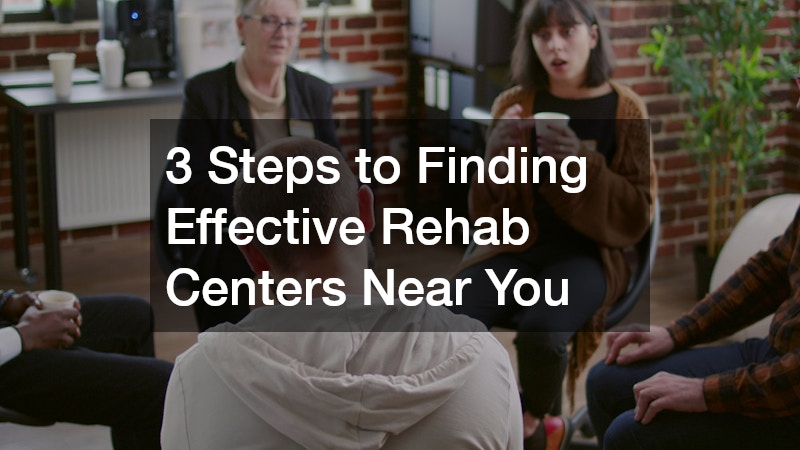When facing the challenges of addiction or in need of rehabilitation, finding the right rehab centers can make all the difference. The impact of a well-chosen rehab facility on recovery is profound, offering a structured environment and specialized treatment tailored to individual needs.
The right rehabilitation program can not only aid in immediate recovery but also provide long-term strategies and support systems that can significantly improve outcomes. It’s essential to approach the search for a rehab center with careful consideration and informed decisions.
This article aims to guide you through the three crucial steps in finding an effective rehab center, emphasizing the importance of making well-informed choices. Understanding your needs, knowing what to look for, and evaluating effectiveness are critical aspects of this journey.
How Do I Start Searching for a Rehab Center?
Understand Your Needs
The first step in finding an effective rehab center is to thoroughly understand your personal needs and goals for treatment. Consider the specific substance or behavior you need help with, as well as any co-occurring mental health issues that may require attention.
It is crucial to determine what type of program will fit best with your lifestyle and preferences, whether it be inpatient treatment, outpatient therapy, or support groups. Observing your personal history with addiction and recovery can also offer valuable insights into the kind of support and environment you need.
Asking yourself these questions will help in narrowing down options and focusing on facilities that resonate with your specific requirements. This self-awareness can drastically influence the effectiveness of the treatment received.
Research Different Types of Rehab Programs
Once you’ve identified your needs, it’s time to explore the different types of rehab programs available. Traditional rehab centers offer structured inpatient programs, which provide immersive environments focused on intensive care and detoxification.
Alternatively, outpatient programs exist that allow individuals to receive treatment while maintaining their daily responsibilities, making them ideal for those with strong support systems at home. Specialized rehab facilities are also available for various demographics, such as gender-specific programs or facilities for young adults.
Additionally, dual diagnosis programs are designed to handle both addiction and any co-occurring mental health disorders, offering integrated treatment plans. Gaining a thorough understanding of these different offerings will enable you to choose a program that aligns with your personal recovery goals.
What Should I Look for in a Rehab Center?
Accreditation and Licensing
One of the most important factors to consider when choosing a rehab center is its accreditation and licensing. Accredited facilities adhere to specific standards of care and practices set by reputable health organizations, ensuring the delivery of quality treatment.
Licensing is an essential marker of legitimacy and professionalism, indicating that the facility complies with state and national regulations. Knowing that the rehab center is both licensed and accredited provides a layer of security and trust, vital for anyone embarking on the recovery process.
Moreover, accreditation bodies like the Joint Commission and CARF (Commission on Accreditation of Rehabilitation Facilities) can offer a database of approved rehab centers. Checking these credentials should be a priority during your search.
Treatment Approaches and Specialties
The methodologies and specialties offered by a rehab center play a significant role in its effectiveness. Look for centers that offer a comprehensive range of treatments, such as cognitive-behavioral therapy, 12-step programs, and holistic approaches.
Understanding these treatment approaches will help you make informed decisions that align with your preferences and therapeutic needs. A treatment center that specializes in your particular challenges can offer more targeted and effective support.
How Do I Evaluate the Effectiveness of a Rehab Center?
Success Rates and Testimonials
Evaluating a rehab center’s success rates and testimonials is an insightful way to gauge its effectiveness. High success rates, though not the only measure, can provide some confidence in a facility’s ability to deliver results.
It’s also beneficial to read testimonials from former patients who have firsthand experience with the services and programs offered. Insightful reviews can shed light on both the strengths and weaknesses of a center, giving you a clearer picture of what to expect.
When assessing these factors, it’s essential to approach success statistics with caution, recognizing that recovery is highly individual. Client testimonials can offer a balanced perspective, highlighting personal recoveries and durability of support systems.
Aftercare and Support Systems
Effective aftercare services and robust support systems are critical components of a lasting recovery. Aftercare plans may include continued therapy, support groups, and access to community resources that help individuals maintain sobriety and address challenges post-rehab.
In summary, finding an effective rehab center involves understanding your personal needs, exploring your treatment options, and thoroughly evaluating potential centers. Careful consideration in each of these steps plays a crucial role in ensuring a successful recovery journey.
Accreditation, treatment approaches, and aftercare services are among the key factors to keep in mind during your search. By prioritizing quality, tailored care, and long-term support, you improve the likelihood of a lasting recovery.
Remember, the path to recovery is unique for everyone, and finding the right rehab center is a significant step in achieving enduring success. The investment in your health and well-being is a decision that deserves thoughtful and informed action.


